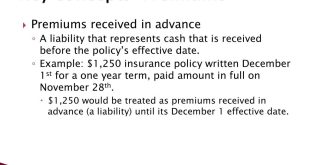Disability insurance is designed to provide financial support if you become unable to work due to a disability. There are several types of disability insurance, each with different features and purposes. Here’s a comprehensive overview of the various types:
1. Short-Term Disability Insurance
- Definition: Provides coverage for a limited period, typically ranging from a few weeks to six months.
- Benefits: Offers income replacement for a short duration while you recover from a temporary illness or injury.
- Common Features:
- Elimination Period: Usually shorter, such as 7-14 days.
- Benefit Period: Short, often up to 6 months.
- Coverage: Covers a portion of your income, typically 60-80%.
- Typical Use: For short-term illnesses, minor surgeries, or temporary injuries.
2. Long-Term Disability Insurance
- Definition: Provides coverage for extended periods, potentially up to several years or even until retirement.
- Benefits: Offers ongoing income replacement if you are unable to work for an extended period.
- Common Features:
- Elimination Period: Longer, often 90 days or more.
- Benefit Period: Can range from a few years to age 65 or longer.
- Coverage: Covers a percentage of your income, generally 50-70%.
- Typical Use: For serious, long-term health conditions or chronic disabilities.
3. Individual Disability Insurance
- Definition: Purchased by an individual to cover personal income.
- Benefits: Tailored to the individual’s needs and can be customized for coverage details.
- Common Features:
- Policy Terms: Can be more flexible, allowing for custom options.
- Portability: Coverage is maintained regardless of employment status.
- Typical Use: Provides income protection for professionals, self-employed individuals, or those not covered by employer insurance.
4. Group Disability Insurance
- Definition: Offered through an employer or organization.
- Benefits: Usually less expensive than individual plans due to the group nature.
- Common Features:
- Policy Terms: Standardized, often less flexible.
- Coverage: May be basic and less comprehensive compared to individual policies.
- Typical Use: Provides coverage for employees as part of a benefits package.
5. Employer-Sponsored Disability Insurance
- Definition: A type of group disability insurance provided through your workplace.
- Benefits: Can be offered as part of a benefits package; may include both short-term and long-term options.
- Common Features:
- Cost: Often subsidized or fully paid for by the employer.
- Coverage: May have limited benefits or be supplemental to individual policies.
6. Social Security Disability Insurance (SSDI)
- Definition: A federal program providing benefits to individuals with disabilities who have paid into Social Security.
- Benefits: Monthly benefits based on your work history and earnings.
- Common Features:
- Eligibility: Requires sufficient work credits and meeting the Social Security Administration’s definition of disability.
- Coverage: Can provide a significant source of income, but has a rigorous application process.
7. Supplemental Disability Insurance
- Definition: Additional coverage that supplements existing disability insurance.
- Benefits: Provides extra financial support beyond what is covered by employer or basic disability policies.
- Common Features:
- Policy Terms: Fills gaps in coverage provided by primary insurance.
- Coverage: Additional benefits to cover expenses or income loss.
8. Critical Illness Insurance
- Definition: Provides a lump sum payment if diagnosed with a specific critical illness.
- Benefits: Offers financial support to cover expenses associated with severe health conditions.
- Common Features:
- Coverage: Covers specific illnesses like cancer, heart attack, or stroke.
- Payment: One-time lump sum payment upon diagnosis.
9. Accident Insurance
- Definition: Offers benefits for disabilities resulting specifically from accidents.
- Benefits: Provides coverage for injuries and associated costs due to accidents.
- Common Features:
- Coverage: Limited to accidents, not illnesses or pre-existing conditions.
10. Business Overhead Expense Insurance
- Definition: Helps cover business expenses if the owner is disabled.
- Benefits: Supports the operational costs of a business while the owner is unable to work.
- Common Features:
- Coverage: Covers expenses like rent, utilities, and salaries.
11. Own-Occupation vs. Any-Occupation Policies
- Own-Occupation Disability Insurance
- Definition: Covers you if you are unable to perform the specific duties of your own occupation.
- Benefits: Typically offers higher benefits as it is more specific.
- Common Features: More comprehensive and expensive.
- Any-Occupation Disability Insurance
- Definition: Covers you if you are unable to perform the duties of any occupation.
- Benefits: Usually has lower premiums but stricter conditions.
- Common Features: Less comprehensive coverage.
Summary Table
| Type | Duration | Coverage | Common Features | Typical Use |
|---|---|---|---|---|
| Short-Term Disability Insurance | Few weeks to 6 months | 60-80% of income | Short elimination period, short benefit period | Temporary illnesses/injuries |
| Long-Term Disability Insurance | Months to retirement | 50-70% of income | Longer elimination period, long benefit period | Serious or chronic disabilities |
| Individual Disability Insurance | Flexible duration | Customizable coverage | Portable, customizable terms | Self-employed or those needing personal coverage |
| Group Disability Insurance | Employer-specified | Basic coverage | Less expensive, standardized terms | Employee benefits packages |
| Employer-Sponsored Disability Insurance | Varies | Basic or supplemental | Often subsidized, group policies | Provided as part of employee benefits |
| Social Security Disability Insurance (SSDI) | Long-term | Based on work history | Federal program, strict eligibility | Long-term disability for qualifying individuals |
| Supplemental Disability Insurance | Varies | Extra coverage | Additional to primary policies | To fill gaps in existing coverage |
| Critical Illness Insurance | Lump sum payment | Specific illnesses | One-time payment upon diagnosis | Severe health conditions like cancer |
| Accident Insurance | Varies | Accident-related | Covers injuries from accidents | Specific to accidents, not illnesses |
| Business Overhead Expense Insurance | Varies | Business expenses | Covers operational costs for a business | Business continuity during disability |
| Own-Occupation Disability Insurance | Varies | Specific occupation | Higher benefits, covers own occupation | High-level professional jobs |
| Any-Occupation Disability Insurance | Varies | Any occupation | Lower premiums, covers any occupation | Broader coverage but stricter conditions |
Understanding these types of disability insurance can help you choose the right coverage based on your needs, occupation, and financial situation.



